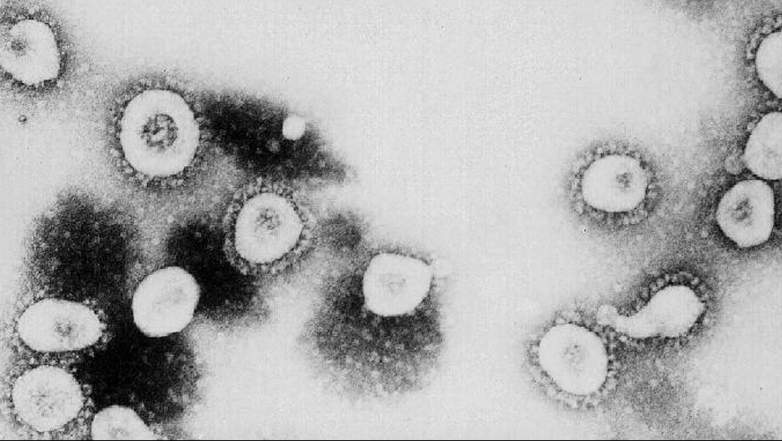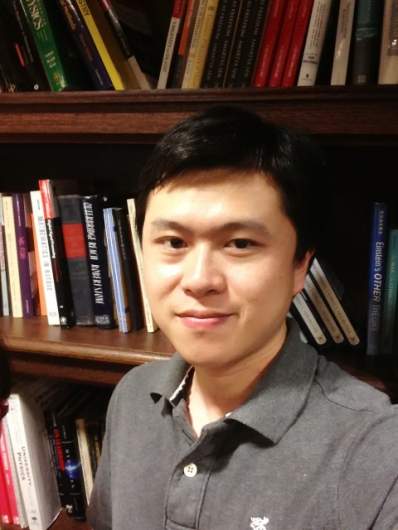
Dr. Bing Liu was a University of Pittsburgh researcher in Pennsylvania and molecular biologist who was researching the COVID-19 virus and was described as being on the verge of “making very significant findings” relating to it. Authorities say Liu died in a Pennsylvania murder-suicide, although the motive remains unclear.
Liu was a research assistant professor in the Computational Systems and Biology Department at the University of Pittsburgh School of Medicine. He died on Saturday, May 2, 2020, in an Elm Court townhouse located not far from Pittsburgh.
“Bing was on the verge of making very significant findings toward understanding the cellular mechanisms that underlie SARS-CoV-2 infection and the cellular basis of the following complications,” the School of Medicine wrote in a statement. “We will make an effort to complete what he started in an effort to pay homage to his scientific excellence.”
Here’s what you need to know:
1. Liu Died of Gunshot Wounds

University of Pittsburgh School of MedicineDr. Bing Liu
Police in Ross Township believe that Liu, 37, knew his assailant, although the motive isn’t clear.
The suspect — named as Hao Gu, 46 — was found dead in a car from what appears to be a self-inflicted gunshot wound to the head, leading police to call the deaths a murder-suicide.
Police say the suspect killed Liu in an Elm Court home before shooting himself in the car, according to CBS Pittsburgh.
Liu died of gunshot wounds to the “head, neck and torso,” the television station reported. According to the Pittsburgh Post-Gazette, Liu’s rear and front patio doors were open at the time of the homicide due to nice weather, his wife wasn’t at home and there was no forced entry and nothing taken.
2. Liu Was Described as an ‘Outstanding Researcher’ Whose Expertise Included ‘Computational Modeling’

GettyThis photo from the Centers for Disease Control and Prevention shows a microscopic view of the coronavirus.
The School of Medicine released a statement praising Liu as an “outstanding researcher” and saying he “has earned the respect and appreciation of many colleagues in the field, and made unique contributions to science.”
Dr. Ivet Bahar, head of the Computational and Systems Biology Department, told the Pittsburgh Post-Gazette that Liu recently began studying COVID-19 and “was just starting to obtain interesting results.”
His area of expertise was “computational modeling and analysis of biological systems dynamics,” the University said, adding:
He had developed high-performance computing techniques and advanced machine-learning approaches for modeling the time evolution of complex cellular interactions, Bayesian network models and methods, and statistical model checking and sensitivity analyses.
On his faculty page, Liu explained:
My research area centers on computational systems biology. I develop computational modeling, simulation and analysis techniques to study the dynamics of biological systems. As an integral part of my research, I collaborate with a number of biologists and clinicians to study a variety of crucial biological processes related to human immunity and cancer. I also leverage high-performance computing, formal verification, and machine learning techniques to enable the analysis of multi-scale systems. Furthermore, I am applying the techniques I have been developing to analyze cyber-physical systems that are ubiquitous in safety-critical applications.
3. Liu Was Author of a Book & More Than 30 Publications

University of PittsburghDr. Bing Liu
In addition to being a “prolific researcher,” Liu wrote a book and “co-authored in 30+ publications, including four in 2020,” the University of Pittsburgh said.
He was involved in systems biology research at labs. The school said:
He single-handedly helped all of us as well as many collaborators including clinicians here and in other institutions, understand and quantitatively model many complex processes, including immune signaling events, apoptotic and ferroptotic cell death, autophagy, redox lipid programming, response to radiation and radiation therapy, systems (poly)pharmacological treatments.
His publications included articles in Nature Chemical Biology, Radiation Research, Scientific Reports, Science Signaling, International Journal of Molecular Sciences and Frontiers in Pharmacology.
Liu’s publications are listed here.
4. Liu Was Described as Patient & Mature
Liu’s school had only positive things to say about his personality, writing that he was “patient, intelligent, and extremely mature.”
The school noted that Liu was “generously sharing his time and knowledge with younger members of the Bahar lab, as well as students enrolled in our various programs.”
In a statement, the University mourned Liu’s death.
“The University of Pittsburgh is deeply saddened by the tragic death of Bing Liu, a prolific researcher and admired colleague at Pitt,” the statement said. “The University extends our deepest sympathies to Liu’s family, friends and colleagues during this difficult time.”
5. Liu Had Degrees in Computer Science

A passage from Bing Liu’s bio.
Liu received both his Bachelor of Science and Ph.D. in computer science at the National University of Singapore “under the supervisions of Drs. P.S. Thiagarajan and David Hsu, and did his postdoctoral studies in the lab of Professor Dr. Edmund Clarke at Carnegie Mellon University,” the School of Medicine states.
After that point, he joined the Bahar lab as a research associate and was recently promoted to a research assistant professor.
He gave talks in China as recently as 2018, according to his University of Pittsburgh bio page. Daily Mail reported that he is from China originally and his parents still live there.
READ NEXT: Is a Sore Throat an Early Symptom of Coronavirus?
